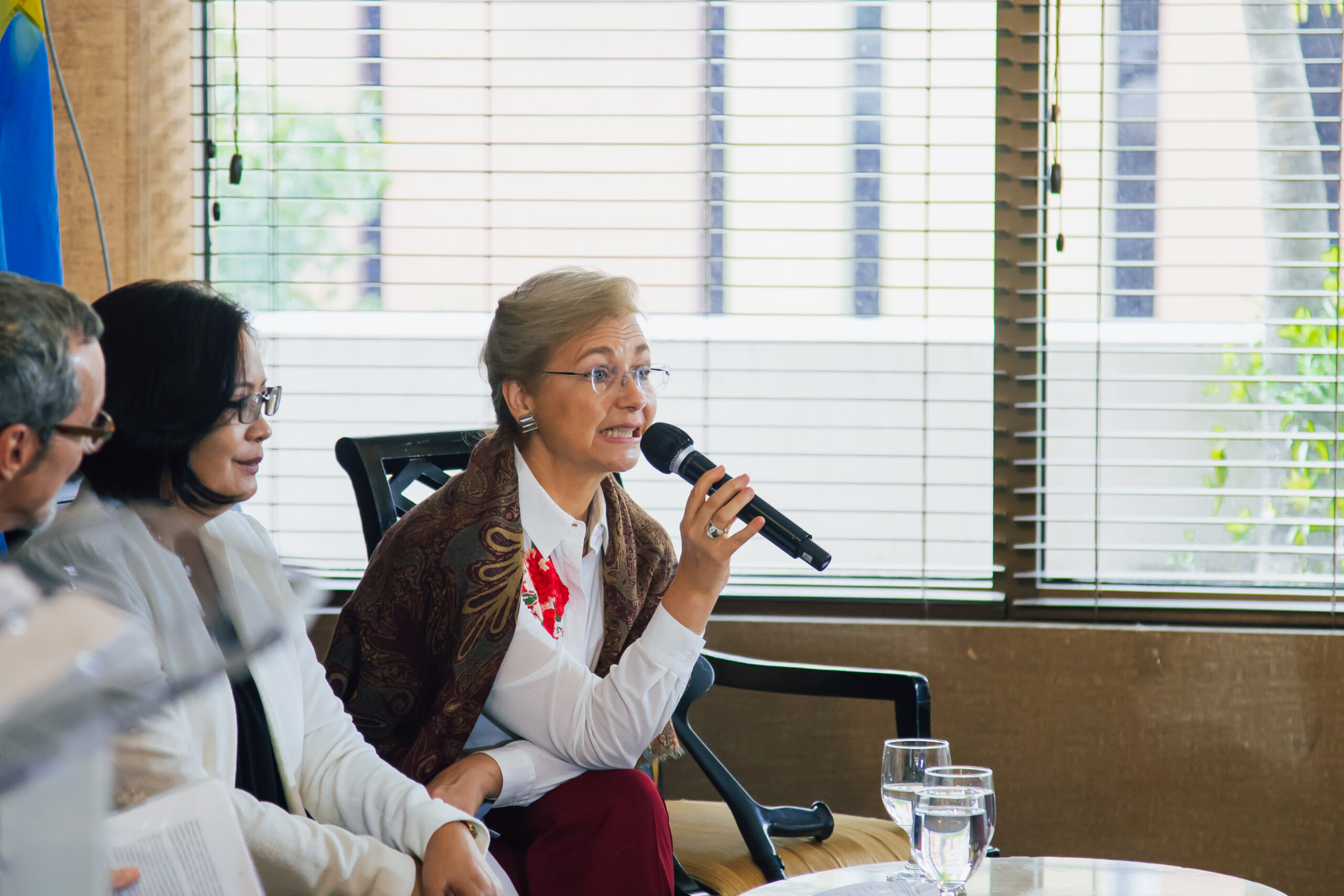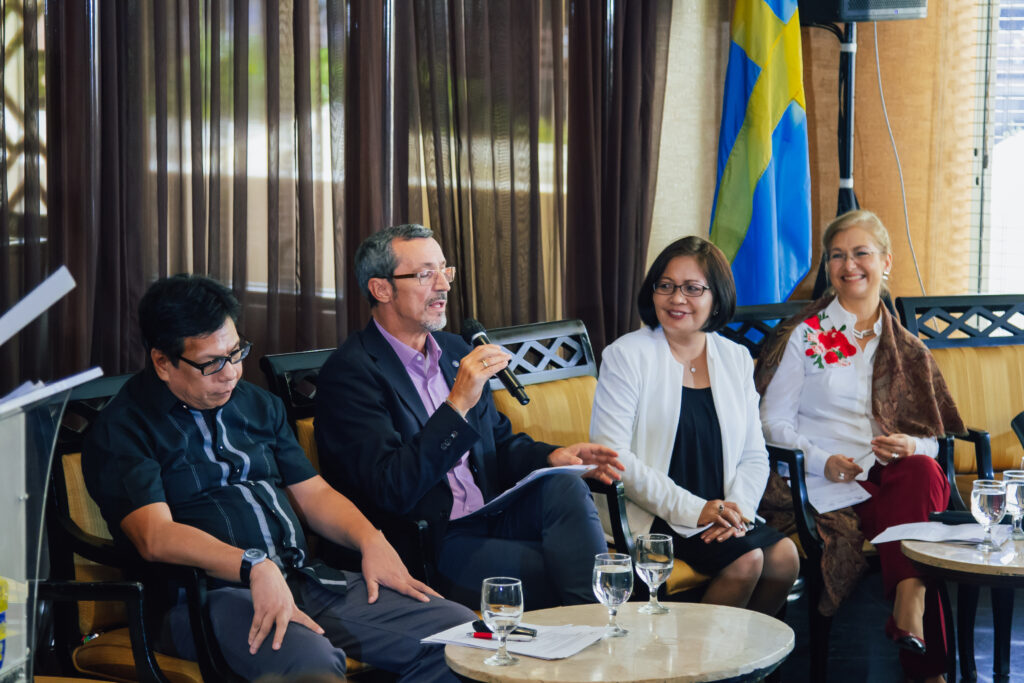
Her Excellency, Ambassador to the Kingdom of Sweden Annika Thunborg, led the championing of labor rights and decent work in two panel discussions on December 7, 2022 at the Dusit Thani Hotel in Makati City.
She underscored the significance of collective bargaining and collective central agreements between trade unions and employer organizations which negotiate and determine the working conditions and salaries across sectors of society.
Ambassador Thunborg was joined by Swedish company officials, who likewise promoted the inclusion of labor rights as a crucial part of furthering socioeconomic development in the Philippines.

During the first panel’s Sustainability Talks: The Right To Decent Work forum, IKEA, Swedish Match, and Learning of the Building and Wood Workers International, they presented their ongoing labor practices in the Philippines.
Sweden is a leader in corporate social responsibility and sustainable business. Swedish companies are trusted to act in a sustainable and responsible manner by working for labor rights, the environment and anti-corruption initiatives.
Mr. Georg Platzer, the head of IKEA Philippines, which opened its largest department store in the world in Manila in December 2021, attributes IKEA’s success to the Swedish value of treating everyone with equal importance, and by treating their “co-workers” with dignity and respect.
IKEA Philippines has given regular contracts and paid leaves to retail employees since the store’s opening. It also provides parental leave – four months for mothers and four weeks for fathers. Decent treatment of workers also extends to their supply chain, ensuring that factory workers have safe working conditions and fair wages.
Mr. Platzer emphasized the retail industry relies on their employees being “competent and confident” about the brand and products they are selling. The practice of contractualization hinders workers from developing these since retail workers are often transferred to a different store or brand before they could have specialized knowledge in their product category.
Ms. Maribel Umali, Head of the Human Resources Management of Swedish Match, agreed with Mr. Platzer that workers should be confident in their work environment and in what their company believes in.
Swedish Match has a factory in Laguna Technopark, which is one of their largest factories in the world. It employs more than 300 workers. The workers belong to unions and are able to negotiate for better compensation, healthcare, and insurance.
Through these negotiations, the employees understand that Swedish Match provides the best benefits the company can afford.
Ms. Umali also noted the company incorporates environmental sustainability in their factory, such as reducing greenhouse gas emissions, running on 100% renewable energy and reduction of landfill wastes.
Ambassador Annika Thunborg explained before the unions in Sweden were strengthened and the labor market was regulated, there was chaos in the labor market. Employees struggled with bad employment conditions and lack of protective legislation as well as agreements about leave and salary. Strikes and unrest were common at the time.
To address these problems, the largest union for blue collar workers Landsorganisation in Sweden and the Swedish Employers association met in a place called Saltsjöbaden outside Stockholm in 1938 and reached an agreement that was called Saltsjöbadsavtalet.
She noted this was a milestone agreement characterized by collective bargaining and collective central agreements between the trade unions and the employer organizations that negotiate and determine the working conditions and salaries in each sector.
It was based on respect for the trade unions by the employers’ organizations and respect for the companies by the trade unions. “Collective agreements have created decent working conditions and stable labor markets without strikes and unrest which have been beneficial to employers, to employees, to companies, and to society,” said Ambassador Thunborg.
Meanwhile, Mr. Marlon Quesada, Regional Head of Learning of the Building and Wood Workers International, has worked with various unions in Sweden and the Philippines.
Mr. Quesada stressed that in discussing decent working conditions, there has to be a mutual recognition of both the laborer’s rights and the employer’s rights. Through social dialogue, “unions can contribute to nation building and creating a stable society.”


